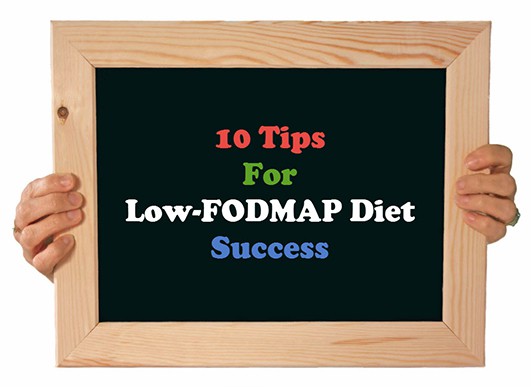Introduction
If you have read my initial blog posts you will know that I was diagnosed with IBS in 2013, but for two years prior to my diagnosis I was feeling sick every time I ate. I loved food, but I was dreading eating, as I knew it always ended up with me running to the toilets many times after every meal.
At that time I did not know that I was suffering from the fairly common Irritable Bowel Syndrome, in fact I didn’t really know what IBS was, I had heard the name before, but that was it.
Fortunately for me, after visiting a lot of doctors and specialists I finally found an extremely good GP, who really took the time to listen to me and thoroughly looked into my medical history. When the diagnosis came that I had non-alcoholic fatty liver and IBS I was extremely relieved, I could finally do something about my health. The GP immediately referred me to a dietitian, who explained to me that my symptoms could be well managed by following a low FODMAP diet. Amen to that, I did strictly followed the dietitian advice and within a very short amount of time, I could see the difference in my health, no more bloated belly and no more runs to the toilets, life was good again.
Recently I have decided to dedicate my free time blogging about low FODMAP diet, as I have realised that a lot of IBS sufferers, despite knowing what is wrong with them, they haven’t been introduced to the low FODMAP diet, as a first attempt to solve their problems. Living in Australia, (this is the country that has created this diet), has given me the advantage that a lot of GPs and most dietitians are very familiar with this diet and personally I would rather change my lifestyle than take any prescribed medication, when possible. The low FODMAP diet has been proven successful for 75% of the IBS sufferers who have tried it. It worked so well for me that I feel the need to spread the word about it, in the hope to reach those sufferers that have not heard about it. I understand it may not work for everybody, but it is worth a try.
Like me there are other IBS sufferers and/or doctors, dietitians, health experts spreading the information on low FODMAP diet and in fact the below tips to achieve low-FODMAP Diet success have been kindly offered by Dr. Barbara Bolen and Kathleen Bradley, CPC, the authors of The Everything® Guide to the Low-FODMAP Diet, a fantastic cookbook which presents 150 healthy and delicious original recipes for managing IBS and other digestive disorders. I have recently published a blog post with Q & A with Dr. Barbara Bolen, you may want to read it, as it has some very good points regarding the low FODMAP diet.
10 Tips For Low-FODMAP Diet Success
- Be open with others about your special dietary needs. No need to be embarrassed, simply tell people that you are on a special diet for your stomach.
- Read labels carefully! Watch out for those hidden high FODMAP ingredients, such as gluten, HFCS, onion and garlic flavoring, inulin and artificial sweeteners ending in -ol.
- Pick restaurants that offer gluten-free options. They will be more likely to be willing to prepare foods in a way that is appropriate for you.
- Feel free to eat protein foods, such as meat, chicken, fish and pork, as long as they are not prepared with high FODMAP ingredients.
- Learn to love cooking. Preparing your own food is the best way to have full control over what you are eating.
- Move all high-FODMAP foods and ingredients to a designated part of your kitchen or get rid of them altogether.
- Make a list of appropriate substitutions for your favorite foods. For example: if you love cous cous, try millet; substitute pepitas for pistachios; tamari for soy sauce; etc.
- Pack low-FODMAP foods and snacks to take with you. For travel, Low-FODMAP cereal or granola doesn’t need refrigeration and can work as a snack as well as a meal substitution.
- Don’t go it alone! Reach out to a registered dietician or certified health coach for guidance and support.
- Remember to periodically challenge your sensitivity to foods so as to increase the variety of foods that you can eat.
Conclusion
If you have just been diagnosed with IBS, take the time to see a registered dietitian, she can point you in the right direction and you may surprised how much better you will feel, hopefully you too belong to the 75% success rate.
I wish you all the best and take good care.
xo
Larah



I have heard a lot about HFCS being bad for more than just the digestive tract. I try not to eat a lot of it. I don’t eat bread often because most has some form of corn syrup in it. These are very good tips and excellent for someone like me who is new to the diet. I will be bookmaking this!
Hi Britanica, you are right High Fructose Corn Syrup is really bad for everybody not just IBS sufferers and unfortunately it is in a lot of the processed food and drinks most people consume every day.